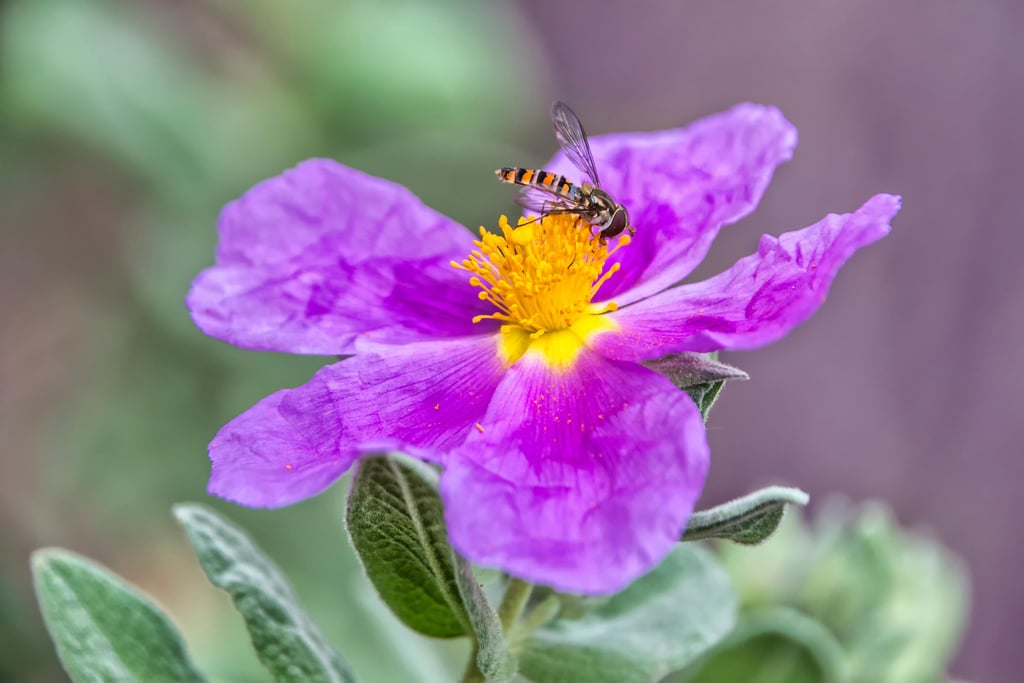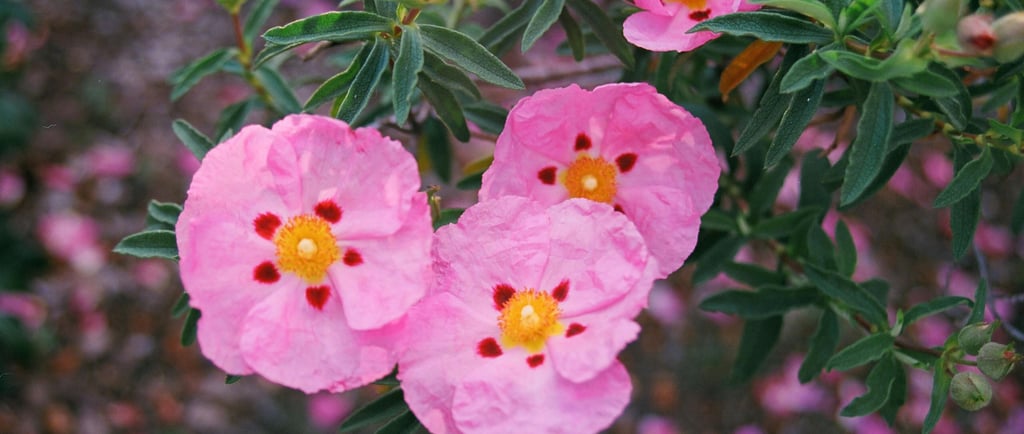Aren’t you afraid of ticks?
A question I hear often – but my answer has more to do with trust than fear. In this piece, I share my story with ticks, illness, and the wild plant that walks beside me: Cistus incanus.
PLANT WISDOM JOURNAL
Sigita Gyva


I get asked this question a lot. But this week, I received a message from a complete stranger – one of my followers – that truly surprised and inspired this article.
In this piece, I’ll share my personal experience with ticks, the fear surrounding them, and a natural remedy I use for protection.
Since childhood, I’ve never feared anything in nature. Whether it crawls, slithers, swims, or flies – nothing natural has ever caused me fear or disgust. It’s all part of the ecosystem. Everything in nature has a role. Over time, I’ve realized that this deep acceptance of nature is a kind of freedom. Living without nature, for me, feels like living in a prison.
Six or seven years ago, nearly everyone in my family contracted tick-borne encephalitis. Interestingly, no one was bitten by a tick – they got sick from drinking unpasteurized milk. That was enough. Thankfully, the children and even my mother recovered without complications and now have immunity. I didn’t get sick. Maybe because I didn’t drink the milk (I haven’t consumed milk in years) – or maybe because I wasn’t afraid. Who knows? Fear, after all, often attracts what we fear the most. So I keep it at arm’s length.
Even then, and even now, I don’t fear ticks or disease. I believe illness only visits when it is needed. So if I ever get encephalitis or Lyme disease, I trust it will be a necessary experience. Like everything in life, I accept it: what comes, comes. And it will all be for my growth.
That said, while nature doesn’t scare me, I’m not naive. I understand ticks are disease carriers – and I see it firsthand with my younger daughter currently battling Lyme disease. That’s why I take precautions: starting early each spring, I drink a natural tick repellent – Cistus incanus tincture – and when heading into meadows or forests, I apply an essential oil blend to keep crawling visitors uninterested.
You probably have questions about this plant already, so let me share more about it here.


What is Cistus incanus?
Also known as Cistus creticus or Rock Rose, this flowering plant is native to the Mediterranean region, especially common in Greece, Turkey, and Italy. It belongs to the Cistaceae family and is known for its soft pink or white flowers and resinous leaves.
Botanical Profile
Appearance: A small evergreen shrub, typically growing up to 1 meter tall.
Leaves: Dark green, lance-shaped, and resin-coated.
Flowers: Pink, white, or violet with five petals and a bright yellow center.
Habitat: Prefers dry, rocky soils; often found in shrublands, hillsides, and coastal regions.
Medicinal Properties
Cistus incanus has long been used in traditional medicine across the Mediterranean. Its healing potential includes:
Antioxidant: Rich in polyphenols (like flavonoids and phenolic acids), it helps neutralize free radicals, reducing oxidative stress and inflammation.
Antimicrobial: Studies show its extracts inhibit the growth of bacteria, viruses, and fungi, making it helpful against infections.
Immune Support: Research suggests it stimulates immune cell production and activity.
Anti-inflammatory: Traditionally used to ease inflammation in arthritis and respiratory conditions.
Antiviral: Emerging evidence shows promise against flu viruses and herpes simplex strains.
Cistus as a Natural Tick Repellent
Cistus tea contains bioactive compounds like bioflavonoids, catechins, gallic acid, proanthocyanidins, and polyphenols. These create aromas that are irritating to ticks and insects. Unlike humans, ticks are highly scent-sensitive and avoid unpleasant odors.
Drinking Cistus incanus tea or tincture may help protect you from tick bites, mosquitoes, and related illnesses. It offers health benefits beyond repelling pests and is considered a safer alternative to synthetic repellents like DEET.
In fact, research from the U.S. National Institute for Occupational Safety and Health (NIOSH) found that DEET exposure in park workers led to abnormal sweating, confusion, urinary issues, muscle cramps, and insomnia. These synthetic chemicals can absorb through the skin and disrupt cognitive function or cause rashes.
Cistus, on the other hand, is safe for both humans and pets. Some even sprinkle the dried tea leaves into pet food to help repel ticks naturally. Because pets often bring home unwanted guests, this plant-based solution can help protect the whole household.
Beyond protection, Cistus is rich in antioxidants that combat free radical damage and oxidative stress. Its oxides may also support Lyme disease prevention and recovery. As a powerful natural antiviral, Cistus incanus tea is also a great immune-supporting beverage.
Additionally, the Public Library of Science Journal recommends Cistus tea as a preventative for oral infections due to its natural antibacterial and anti-biofilm properties.
My Experience: Last summer, after returning from the outdoors, I found a tiny tick embedded in my skin. It was so small, I couldn’t remove it. I immediately took a dose of tincture. An hour later, there was no sign of the tick — it had left on its own.
So, dear readers, I encourage you to transform fear into knowledge. If there is a problem, nature offers a solution. We just have to find it.
Oh, and one more thing... I don't vaccinate :)
For further reading:
Disclaimer & Holistic Responsibility Statement
At Manua, we honor the deep roots of ancestral plant wisdom. Every offering shared on this platform reflects traditional herbal knowledge and our own lived experience with nature's remedies. However, it is essential to approach wellness with discernment and personal responsibility.
Our products and content are not intended to diagnose, treat, cure, or prevent any disease.
All descriptions, including uses and benefits, are provided for educational and informational purposes only, and are based on traditional uses, folk practices, and naturalist perspectives.
This offering is not a substitute for professional medical advice, diagnosis, or treatment. We do not make medical claims and we do not encourage replacing prescribed care with herbal preparations.
We strongly encourage each individual to make health decisions with intention – guided by multiple sources of information, personal experience, and the support of a trusted healthcare provider. Always consult with your physician, naturopath, or clinical herbalist if you are pregnant, breastfeeding, taking medications, or navigating a specific health condition.
Nature’s path is personal. Trust your intuition. Listen to your body. Seek wisdom where it aligns with your truth.
Gather with us in the wild web
Living closer to nature, through learning and presence.
Letters from the Wild
© 2025. All rights reserved.
